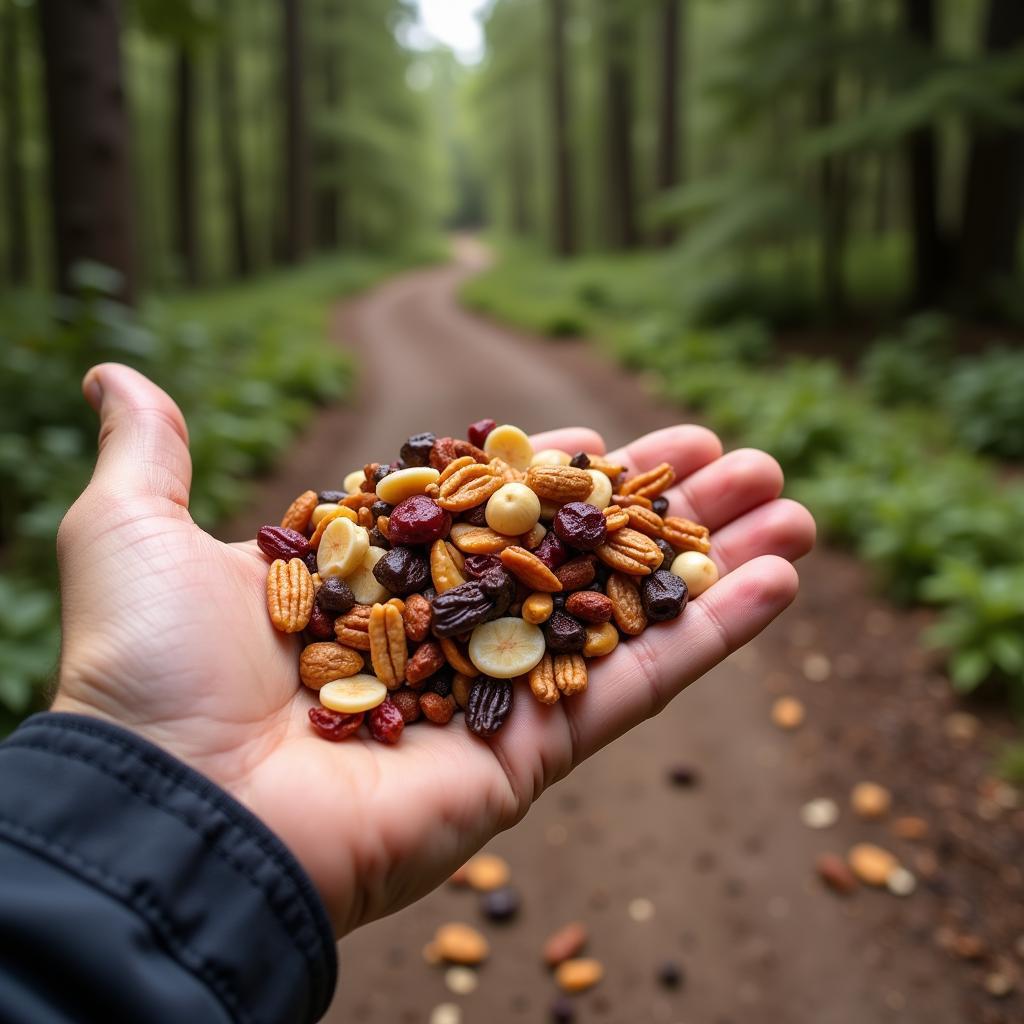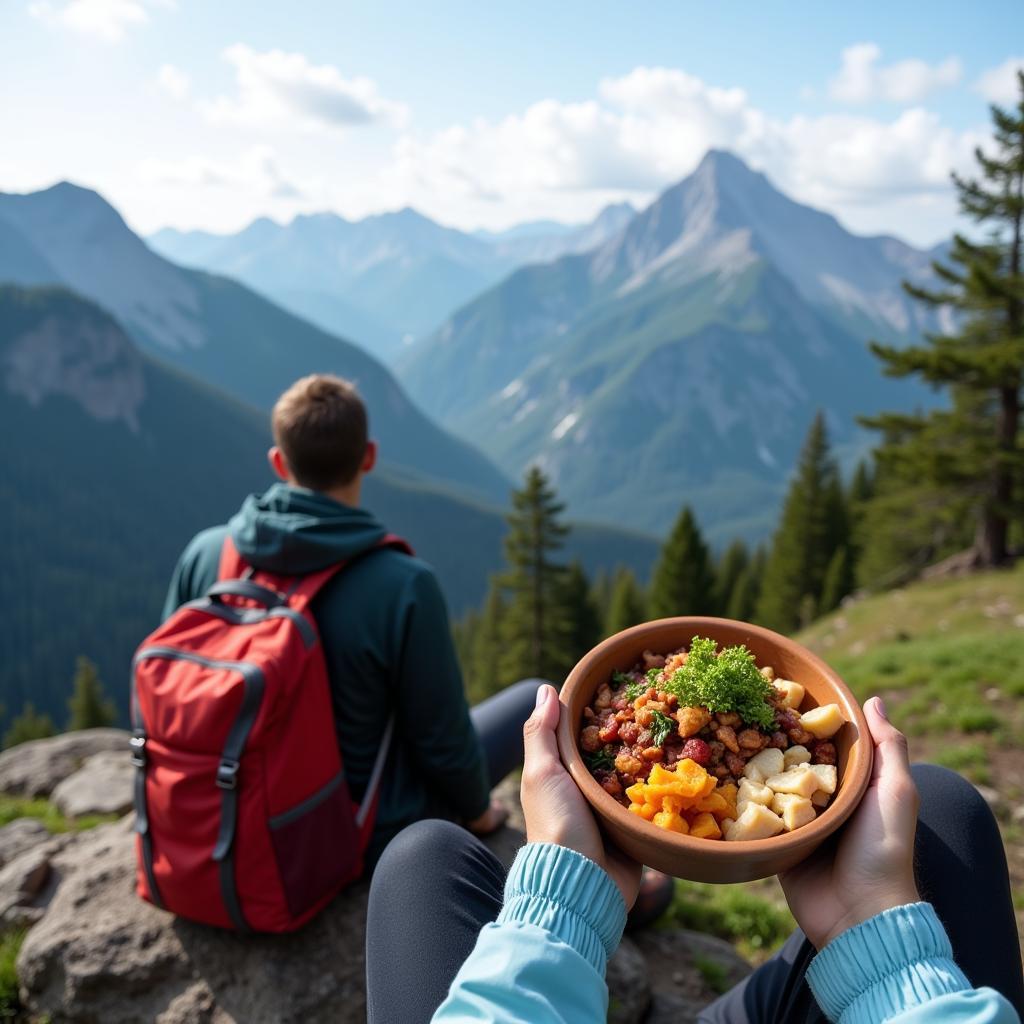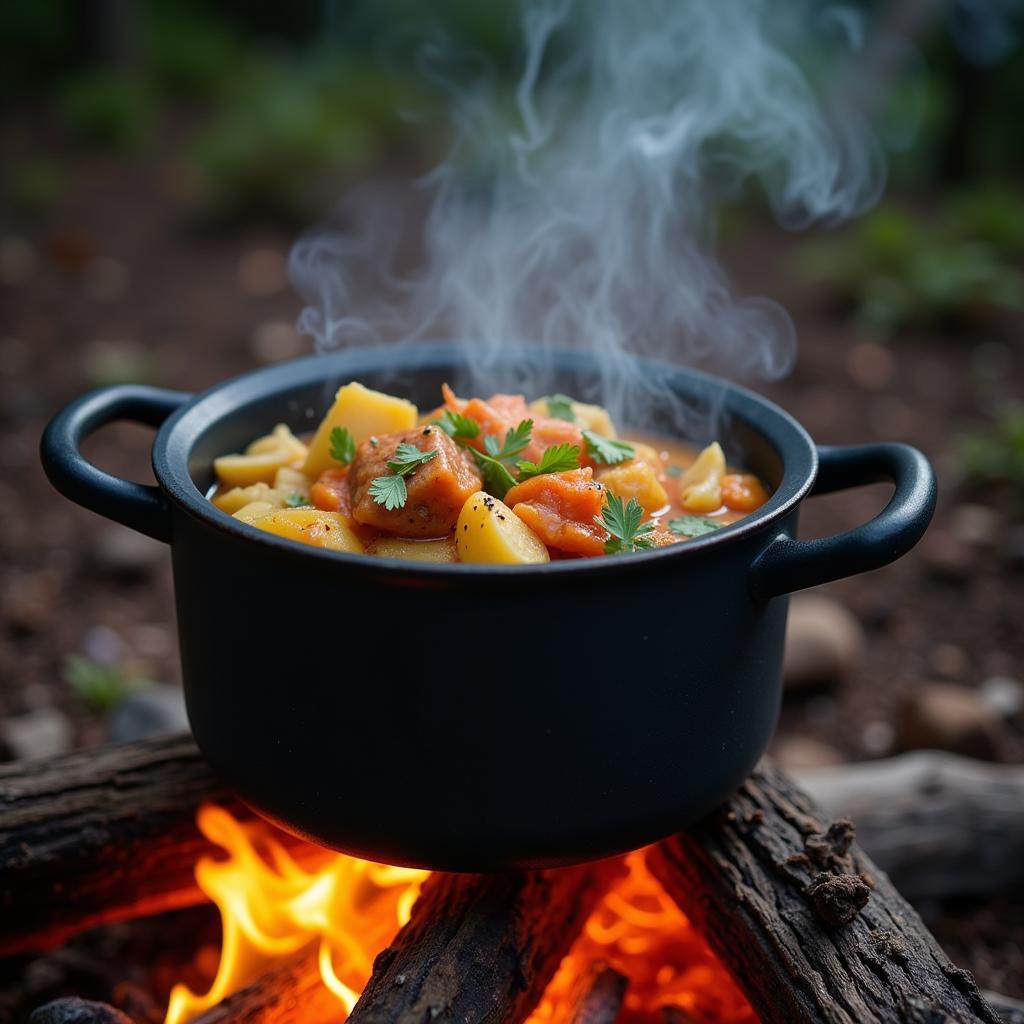Packing for a backpacking trip? Don’t overlook the importance of calorie-dense foods. When you’re hiking all day, your body needs a lot of energy to keep going. Choosing lightweight, nutrient-packed foods that provide sustained energy is essential for a successful trip. This guide will explore the best calorie-dense backpacking foods to fuel your adventures.
Why Calorie-Dense Foods are Essential for Backpacking
Backpacking requires significant physical exertion, meaning your body burns more calories than usual. Calorie-dense foods help you:
- Maintain Energy Levels: Consistent energy is crucial for tackling challenging trails and covering long distances.
- Optimize Pack Weight: Carrying less food means a lighter pack, which reduces strain and fatigue.
- Prevent Muscle Breakdown: Adequate calorie intake helps prevent your body from breaking down muscle for fuel.
Choosing the Right Calorie-Dense Foods
Not all calories are created equal. Here’s what to look for when selecting foods for your backpack:
- High in Calories: Aim for foods with a high calorie-to-weight ratio.
- Nutritious: Prioritize foods rich in carbohydrates, protein, and healthy fats for balanced nutrition.
- Shelf-Stable: Choose foods that can withstand temperature fluctuations and won’t spoil easily.
- Easy to Pack: Opt for compact and lightweight options to minimize pack weight.
 Trail Mix Energy Boost
Trail Mix Energy Boost
Top Calorie-Dense Backpacking Food Ideas
1. Nuts and Seeds
Nuts and seeds are nutritional powerhouses, packed with calories, healthy fats, protein, and fiber.
Best Options:
- Almonds: High in protein and fiber.
- Cashews: A good source of magnesium, which aids in muscle recovery.
- Peanut Butter: Versatile and calorie-dense, perfect on crackers or in tortillas.
- Chia Seeds: Tiny seeds loaded with omega-3 fatty acids and fiber.
2. Dried Fruit
Dried fruit is a great source of quick energy thanks to its high natural sugar content.
Best Options:
- Mangoes: Rich in vitamins A and C.
- Dates: A natural energy booster packed with potassium.
- Raisins: High in iron and antioxidants.
- Dried Cranberries: Tart and tangy, with a boost of vitamin C.
 Backpacker Enjoying Meal
Backpacker Enjoying Meal
3. Trail Mix
Trail mix is the ultimate backpacking food–it’s customizable, nutrient-dense, and easy to pack.
Mix and Match:
- Nuts: Almonds, cashews, peanuts, walnuts
- Seeds: Sunflower, pumpkin, chia
- Dried Fruit: Mangoes, cranberries, raisins
- Chocolate: Dark chocolate chips for an antioxidant boost
4. Whole Grains
Whole grains provide sustained energy thanks to their complex carbohydrates and fiber content.
Best Options:
- Oatmeal: A warm and comforting breakfast option.
- Quinoa: A complete protein source that’s also gluten-free.
- Rice: Lightweight and versatile for side dishes or main meals.
- Crackers: Choose whole-grain varieties for added fiber.
 Campfire Cooking
Campfire Cooking
5. Protein Sources
Protein is essential for muscle repair and satiety, keeping you feeling fuller for longer.
Best Options:
- Jerky: Lightweight and shelf-stable.
- Tuna Pouches: A convenient source of protein and omega-3 fatty acids.
- Protein Bars: Choose bars with a good balance of protein, carbs, and fats.
- Hard-Boiled Eggs: A great source of protein and nutrients, but keep them refrigerated until use.
For more ideas on how to incorporate these ingredients into your backpacking meals, check out our posts on paleo backpacking food, food bag backpacking, hiking food vegetarian, and thru hiking food.
Tips for Packing Calorie-Dense Backpacking Foods
- Repackage Food: Remove excess packaging to save space and weight.
- Divide into Portions: Pre-portioning meals and snacks makes it easier to manage food intake.
- Store Properly: Use waterproof bags or containers to protect food from moisture and critters.
Conclusion
Choosing the right calorie-dense backpacking foods is vital for a successful and enjoyable trip. By selecting nutrient-rich, lightweight, and shelf-stable options, you can fuel your body for adventure while keeping your pack weight manageable. Remember to plan, prepare, and enjoy the journey!
FAQs About Calorie-Dense Backpacking Food
1. How many calories do I need while backpacking?
Calorie needs vary based on factors like age, gender, and activity level. On average, backpackers burn between 2,500-4,500 calories per day.
2. Can I bring fresh fruits and vegetables?
While fresh produce is nutritious, it can be heavy and spoil quickly. Opt for dried or dehydrated options instead.
3. What are some good no-cook backpacking meal ideas?
Trail mix, jerky, tuna pouches, and instant oatmeal are great no-cook options.
4. How do I prevent my food from getting crushed in my backpack?
Use sturdy containers like bear canisters or hard-sided food bags to protect fragile items.
5. Can I bring supplements on a backpacking trip?
Electrolyte tablets and protein powder can be helpful additions.
Need help planning your backpacking menu? Contact us! We’re here to help you fuel your adventures.
Phone: 02437655121
Email: [email protected]
Address: 3PGH+8R9, ĐT70A, thôn Trung, Bắc Từ Liêm, Hà Nội, Việt Nam.